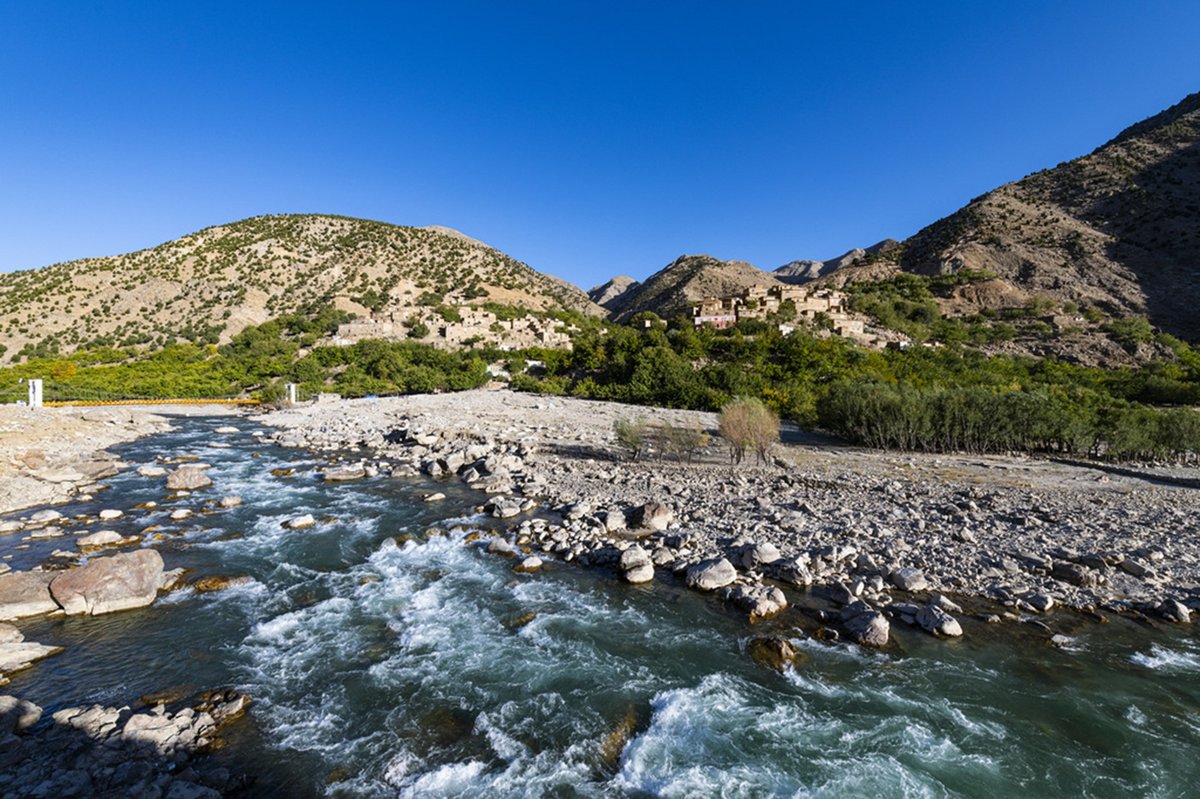Afghanistan 2021: Graveyard of empires – test case for global justice
Statement by the President of the International Progress Organization (I.P.O.) Professor Dr Dr h.c. mult. Hans Köchler

(picture hanskoechler.com)
On 31 August 2021, the President of the United States declared that the withdrawal of all U.S. troops from Afghanistan was “about ending an era of major military operations to remake other countries.” Implicitly admitting that nation building was not an “achievable goal,” he insisted that the United States should “move on from that mindset” and should “learn from our mistakes.” (Remarks by President Biden on the End of War in Afghanistan, The White House, State Dining Room, August 31, 2021)
After 20 years of war: collapse of the artificial political structure
After a period of 20 years of military engagement, the withdrawal of all foreign troops has led to the immediate collapse of the artificial political structure, kept in place by the invading power, and has enabled the domestic resistance – the Islamic Emirate of Afghanistan (Taliban) – to reestablish governmental authority on the entire territory of Afghanistan in a matter of days. It is worthy of note that the U.S. withdrawal was in implementation of an “Agreement for Bringing Peace to Afghanistan” concluded on 29 February 2020 in Doha, Qatar between the Islamic Emirate of Afghanistan and the United States of America. (Bizarre as it may be in terms of diplomatic sophistry, the official identification of the Afghan party in the text of the Agreement – as “the Islamic Emirate of Afghanistan which is not recognized by the United States as a state and is known as the Taliban” – cannot hide the fact that, through the conclusion of this bilateral agreement, the United States has de facto recognized the Islamic Emirate, under whichever label, as international negotiating partner.)
The victims of war…
“Operation Enduring Freedom” that began with an all-out aerial attack on 7 October 2001 initiated the “longest war in American history” (President Joseph Biden). The armed intervention was portrayed as a “global war on terror,” with dubious UN justification. It resulted, on the Afghan side, in the death of over 47,000 civilians, almost 70,000 military and police, and more than 51,000 fighters of the Taliban. 2,448 American service members and more than 3,800 U.S. contractors died on the American side.
… and the crimes of the invading forces
In the course of two decades of military operations, personnel of the invading forces, including U.S., U.K. and Australian soldiers, committed exceptionally serious war crimes and crimes against humanity. The facts have been independently researched and revealed by international media and civil society organizations, and are now being investigated by the International Criminal Court (ICC). A report issued on behalf of the Inspector-General of the Australian Defence Force (“Brereton Report”), though only released in a redacted version, documents gruesome crimes by Australian personnel in the period between 2005 and 2016. It reveals, inter alia, a cult of crime among Australian troops, known as “blooding,” where junior soldiers are often required by their superiors to murder prisoners “to get their first kill.” Numerous detailed reports exist on other serious violations of international humanitarian law such as the killing of 47 Afghan civilians, most of them women and children, attending a wedding procession in the Haska Meyna District of Nangarhar Province on 6 July 2008, by U.S. forces. The group was hit in succession by three bombs from U.S. military planes. The most recent deadly attack by U.S. forces against civilians occurred on 29 August 2021 when a U.S. drone killed 10 innocent civilians in Kabul. The many instances of indiscriminate killing of civilians in the course of drone attacks are further evidence of a new kind of asymmetric warfare in which superior technology enables the attacker, at zero risk, to inflict lethal harm on defenseless victims that had the bad luck to become a misidentified “target of opportunity.”
The task of the International Criminal Court
It will be up to the International Criminal Court to investigate and prosecute cases of war crimes (e.g. murder of prisoners and civilians) and crimes against humanity committed on the territory of Afghanistan since 1 May 2003, the date on which the country’s accession to the Rome Statute entered into force. Already in 2018, the International Criminal Court had formally registered a total number of 699 victims’ representations detailing atrocities committed by all warring parties in Afghanistan, not to speak of the 1.7 million individual allegations of war crimes received by the Court by January of that year. (Associated Press, “International Court says it’s ‘undeterred’ by US threats,” 11 September 2018) Initially, the Court faced serious obstacles to the exercise of jurisdiction since the President of the United States, on 11 June 2020, issued Executive Order 13928 threatening “officials, employees, and agents, as well as their immediate family members” with sanctions should the ICC assert jurisdiction over personnel of the United States. (“The International Criminal Court in the Web of Power Politics.” I.P.O. news release, 26 June 2020) Although President Biden, while continuing to assert U.S. objection to the Court’s jurisdiction, revoked the Order on 2 April 2021, the incident has demonstrated the enormous difficulties for international criminal justice in the context of power politics.
The climate of lawlessness and impunity
If a new beginning is to be made after the withdrawal of all coalition troops from Afghanistan, the errors and crimes of the past will have to be addressed. This relates, first and foremost, to the climate of lawlessness and impunity in which the occupying forces operated, and which a senior researcher for Human Rights Watch described as “a sick culture that essentially treated Afghans living in (...) contested areas as if they were all dangerous criminals – even the children – or simply as not human.” (Associated Press, 20 November 2020)
The failure of “nation-building”
The unsuccessful imperial adventure in Afghanistan – after similar failures of the British and Soviet empires in earlier centuries – is further evidence that great powers never learn the lessons of history. Hubris of power, nurtured by success in the Cold War, made the United States embark on a project of “régime change” that was destined to fail from the outset. The arrogance and naiveté of a nation-building doctrine that ignores a people’s historical and cultural roots should have been recognized as such right after the collapse of the Soviet Union’s ideological efforts. The difficulties of “pacification” under Afghanistan’s unique conditions of geography and ethnic diversity could have been common knowledge since Alexander’s ruthless campaign in ancient Bactria and Sogdiana (covering parts of the territory of modern-day Afghanistan) in the 4th century BC.
Funds of the state of Afghanistan
After 40 years of war, including 20 years of high-tech warfare in the 21st century, conducted in the name of “civilization,” Afghanistan now seems to return to its roots. The system set up by the invading powers proved to be the most corrupt in the country’s recent history, and lacked the will to defend itself. The new political and constitutional structure now gradually emerging must not be obstructed by those who, unjustly and unsuccessfully, undertook to change the political landscape by military force. Blocking the foreign reserves of the central bank of Afghanistan (Da Afghanistan Bank, DAB) – $10 billion in assets held in the U.S. or with the International Monetary Fund and other financial institutions abroad – constitutes an outright violation of international law, in fact a policy of economic blackmail pursued by a sore loser on the battlefield. These are funds of the state of Afghanistan, not of the Taliban or any other actor. Withholding the money will only further aggravate the humanitarian crisis in the country.
Engaging constructively with the new Afghan government
Also, the international community, and in particular the United Nations, should constructively work with the new authority, the Islamic Emirate of Afghanistan. It is pointless to insist on the recognition of diplomats of a non-existing government – whose leader and highest functionaries have fled the country, carrying with them huge amounts from state coffers – as representatives of Afghanistan.
For an end to coercive economic measures
If the community of states is indeed committed to the cause of global justice, UN member states should suspend all coercive economic measures that are the legacy of an era of confrontation and only punish the people of Afghanistan collectively. On 17 September, the United Nations Security Council unanimously renewed the mandate of the UN Assistance Mission in Afghanistan (UNAMA). Time has come for the Council to review its targeted sanctions régime concerning Afghanistan in light of recent developments. Because of the veto rule in the Security Council, there is a real risk that the Council will be hostage of its past sanctions resolutions.
Return to an international legal framework
As the course of domestic development and the prospects of reconciliation and political stabilization are still fragile and uncertain, nothing should be done to further aggravate the situation. States should take seriously their international responsibility under the United Nations Charter and cooperate with Afghanistan on the basis sovereign equality and non-interference in internal affairs. Those actors that have intervened militarily should shoulder their responsibility under international humanitarian law. The individuals who have committed war crimes or crimes against humanity on the territory of Afghanistan must be held accountable. Impunity for international crimes will not only undermine peace and stability in the country and the wider region, but also will erode the international rule of law on which world order is and must be built in the 21st century. The challenge before the International Criminal Court – including investigating and potentially prosecuting personnel from a powerful non-State Party on the basis of territorial jurisdiction – is enormous, and the outcome is uncertain.
Once again, an empire has been brought to its knees
Irrespective of whether justice will eventually be done in matters of state or personal criminal responsibility, nothing can change a course of history that more than once brought an empire to its knees – in the moment when it set out to “pacify” the world by force. •
Source: https://i-p-o.org/Koechler-Afghanistan2021-IPO-nr-22-09-21.pdf
